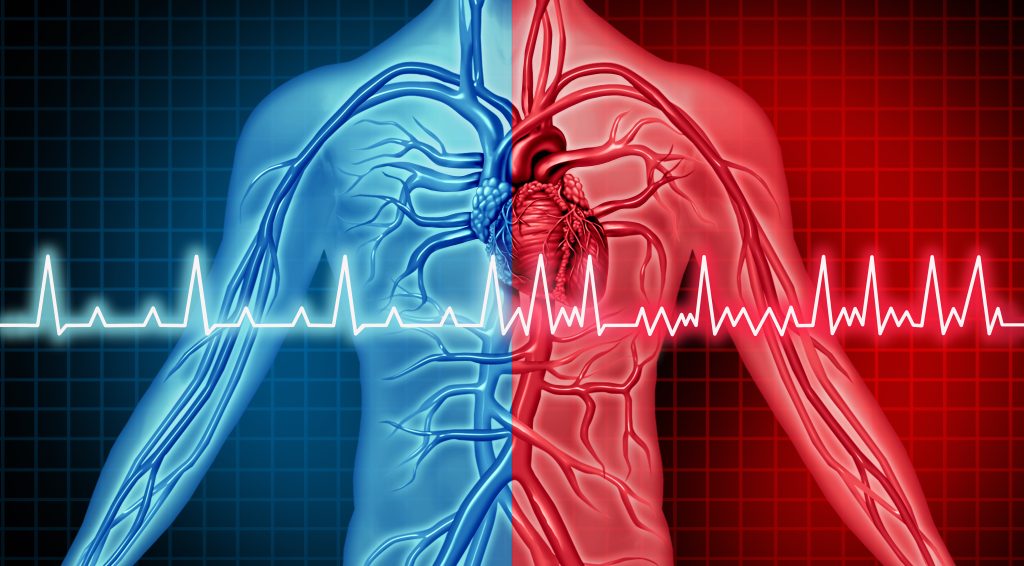Warning Signs of Heart Arrhythmia to Look For

Warning Signs of Arrhythmia
When a person’s heart beats irregularly it is called cardiac arrhythmia. In some cases, the issue may be mild and only require monitoring. However, when left unchecked and untreated, there is the potential for serious health issues, including death. Therefore, you should have a good understanding of the Warning Signs of Heart Arrhythmia.
The Common Signs and Symptoms
In some cases, a person might have a cardiac arrhythmia and not realize it because they don’t have any symptoms. However, others may have some symptoms and signs that could indicate an irregular heartbeat.
For example, someone may have a fluttering or quivering feeling in their chest. They might have an abnormally slow or fast heartbeat. They could also have signs and symptoms that are a bit more pronounced including chest pain, shortness of breath, lightheadedness, fainting or nearly fainting, sweating, fatigue, or anxiety.
When you feel any issues with your heart, even if you might feel they “aren’t a big deal”, you don’t want to take any chances. It is always better to err on the side of caution and get in touch with a medical professional. They can check you out and determine the problem, as well as potential treatments.
What Causes Arrhythmia?
There aren’t just one or two things that could cause cardiac arrhythmia. There could be any number of issues or conditions that could cause the problem.
Common Causes of Heart Arrhythmia
- Scarring from a previous heart attack
- Blocked arteries
- Diabetes
- High blood pressure
- Hyperthyroidism
- Hypothyroidism
- Sleep apnea
- Genetics
- Smoking
- Drug abuse
- Too much alcohol
- Too much caffeine
- Anxiety
- Stress
These are just some of the major causes of cardiac arrhythmia.
You will want to take steps to deal with the problem if you have an irregular heartbeat or to prevent the problem from occurring in the first place. Eating a healthy diet, exercising, reducing stress, and avoiding bad habits like smoking and excessive drinking will help.
You will also want to make sure you are listening to your doctor and following their orders. This may include taking medication like blood thinners, as cardiac arrhythmias often cause an increased risk of blood clots. The blood-thinning meds could help to reduce the risk of stroke.
Types of Arrhythmia
There are multiple types of arrhythmia, each of which affects the heart differently. It’s important to understand at least the basics of each of these different arrhythmias.
- Tachycardia – This type of arrhythmia indicates that you have an excessively fast heartbeat.
- Bradycardia – This type of arrhythmia indicates that you have an excessively slow heartbeat.
- Atrial Fibrillation (AF) – The Centers for Disease Control and Prevention (CDC) names this as the most common type of arrhythmia. Another term for this is a chaotic heartbeat, and it can cause a pulsing or quivering feeling in the chest.
AF happens when the two upper chambers of the heart are not working in sync. It can increase the risk of a stroke. It also causes the heart to beat up to 170 beats per minute and can cause some of the symptoms discussed earlier including shortness of breath, sweating, chest pain, dizziness, fatigue, and sweating. However, not everyone will have symptoms. Atrial fibrillation is very dangerous, and you will need to seek medical attention as soon as possible.
Something to keep in mind when it comes to your heartbeat speed is that different activities will change how quickly your heart beats. For example, exercising, smoking, drinking caffeine, taking drugs, etc. will do this.
Heart Arrhythmia Treatment Options
Typically, treatment for cardiac arrhythmia will only be needed in certain cases. If the issue is not causing serious health problems, the doctors may only want to monitor it. The treatment offered for those who need it will vary based on the type of arrhythmia they have. It can include everything from medication to vagal maneuvers, catheter procedures, cardioversion, and heart surgery.
Consult a Medical Professional
There are serious complications that can arise from arrhythmia. Your organs and brain may not be getting enough blood, which could lead to dementia and other issues. You could have a stroke due to clots, suffer heart failure, or death if treatment isn’t sought out.
If you or a loved one has cardiac arrhythmia, you should make sure to get in touch with a doctor to be checked out as soon as possible and to determine what type of treatment could work for you.
Cardiovascular Research and Training Institute
Researchers at the Nora Eccles Harrison Cardiovascular Research and Training Institute (CVRTI) are studying what can impact the heart’s electrical patterns and how to best diagnose, maintain, and treat cardiac arrhythmias. The CVRTI is committed to better understanding how to maintain a healthy heart and improve heart health outcomes. CVRTI is famous because, thirty years ago, its Investigators discovered the molecular basis of the most prominent genetically acquired arrhythmia syndrome (“Long QT Syndrome”) and identified how common medicines can result in these highly dangerous arrhythmias. Now, Investigators are studying the mechanisms underlying atrial fibrillation and ablation techniques with the goal of improving ablation outcomes (Ranjan ). They are also studying techniques to prevent and terminate life threatening arrhythmias without the need for shocking the heart (Dosdall, Shaw). The genetic and metabolic basis for some of these arrhythmias is also being investigated (Aromolaran, Palatinus, Tristani). Research at CVRTI is changing cardiac arrhythmia patients. Contact CVRTI to learn more about ongoing research for cardiac arrhythmia.


